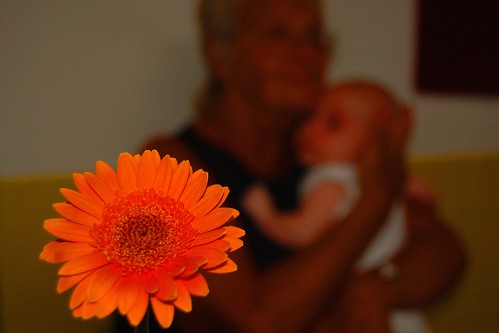Disclaimer: dear casual reader, this post is a bit technical, mostly posts here are funner :)
Disclaimer 2: these are self-administered and self-scored tests. They are not intended as a diagnosis but as a screen and I have completed them for interest as Tokoroth is already in the middle of the series of diagnostic assessments. The fact that I score in the BAP range is entirely consistent with current theory.
I spent a lot of today calculating Tokoroth's Autism Spectrum Quotient (AQ). The problem is that he's too old for the Q-CHAT (Quantative Checklist for Autism in Toddlers) which is ideally applied pre-24 months and too young for the AQ for Children.
All of the tests are available to download from Simon Baron-Cohen's website: http://www.autismresearchcentre.com/ which is a website I wish I had found a lot sooner. I discovered it because I am reading his latest book which I suspect my current SK124 OU course is based on.
I decided to run with the Q-CHAT but retrospectively answer his questions as he was at 2 with some annotation of where there has been change.
http://dl.dropbox.com/u/41893/Completed-Q-CHAT.pdf (score: 62/100)
(the red ticks are the answers for his brother, Little M, which I used as a control set of answers from a typically developing child)
I then ran the standard AQ-Child for children 4+ years
http://dl.dropbox.com/u/41893/Completed-AQ%20-Child.pdf (score: 105/150)
and finally, as advised I ran the AQ-Adult against myself:
http://dl.dropbox.com/u/41893/Completed-AQ-Adult.pdf (score: 27-31/50)
The reason I have 27-31 is that I kept re-interpeting the questions and that's the range I fell between. Interestingly it turned out I wasn't the only one self testing and a conversation on Twitter (with @melph) led me to an online resource for the same test on wired.com.
In the first major trial using the (adult) test, the average score in the control group was 16.4. Eighty percent of those diagnosed with autism or a related disorder scored 32 or higher. So, now I have tests and scores. What I don't have, yet, is a clear understanding of how to interpret the scores for the Q-CHAT and the AQ-Child.
I think it's fair to say that Tokoroth scores pretty high and I am nudging but not on the disorder side of the spectrum. I was a little higher than I expected but the test means very little on it's own. What was quite funny was that after running the tests I took a break to build some Lego with Little M. I found this very relaxing. When I returned to the ARC website I found a link on Lego therapy!
[This post is a work in progress]
edit: Interesting, according to the book, between 27 and 32 is a classic range for BAP.
Mirror touch <> Blackdown
5 weeks ago


